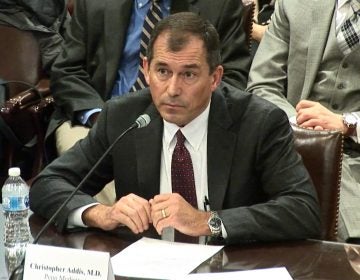Abortion-alternative group disagrees with audit showing it misused Pa. state funds [updated]

Pennsylvania's Capitol building in Harrisburg (WikiMedia Commons)
The Pennsylvania auditor general’s office has released a report claiming that a provider of abortion-alternative services misused taxpayer dollars.
Real Alternatives has been receiving state grants through the Department of Human Services for 20 years.
All of it is supposed to go to the subcontractors that actually provide abortion-alternative services.But Auditor General Eugene DePasquale said the organization has been recouping 3 percent of the grants from each subcontractor and using the money to self-promote — sometimes, outside of Pennsylvania.
After the review was launched, the group sued — alleging auditors were asking for access to private funds. They say the 3 percent fees it charges to subcontractors are optional, and that if a group chooses to pay money back to Real Alternatives, that constitutes discretionary spending of its own money.
Real Alternatives ultimately won the suit, and the court blocked DePasquale’s access to information about how subcontractors are paying the 3 percent fee.
Matt Haverstick, a lawyer for Real Alternatives, called DePasquale’s audit “one more in a series of tax dollar-wasting showboat ‘audits’ conducted without any legal authority by this auditor general.”
He added, “the only difference is this time Commonwealth Court called him on the carpet and told him he had no right to do the audit.”
However, there was never a ruling about whether the funds in question are classified as state money, or private money.
DePasquale said it’s clearly state money and that “the idea of using Pennsylvania taxpayer dollars outside of Pennsylvania should outrage every single Pennsylvanian.”
His office was able to find that, over three years, Real Alternatives collected nearly half a million dollars from its subcontractors.
That proves state departments need to enforce their grant standards better, he said.
“I strongly recommend DHS promptly recover the money Real Alternatives admitted was not spent in accordance with the grant agreement, and if they won’t pay it back, then take them to court,” he said.
Haverstick maintained that all the spending was fully in compliance with the grant agreement. He said Real Alternatives is considering going back to court to attempt to get a ruling that the money can be used however subcontractors see fit.
This story has been updated to include comment from a representative of Real Alternatives, who had previously not responded.
WHYY is your source for fact-based, in-depth journalism and information. As a nonprofit organization, we rely on financial support from readers like you. Please give today.




